Companies that support Israel play a significant role in the nation’s economy, with technology and computer industries accounting for 18.1% of Israel’s GDP and around 50% of its exports. The International Court of Justice has ruled that Israel’s occupation of Gaza and the West Bank is illegal and violates the prohibition against apartheid. Consequently, many activists are turning to economic pressure through targeted boycotts to influence corporate behaviour.
The boycott Israel list continues to grow as more brands that support Israel face public scrutiny. Since October 2023, the U.S. has transferred over 10,000 tons of weapons to Israel, including more than 15,000 bombs and 50,000 artillery shells, highlighting why companies supporting Israel are facing increased calls for consumer action. The BDS movement has already achieved notable successes, pressuring companies like G4S and Veolia to end their complicity in Israeli human rights violations. This article examines the list of companies that support Israel, from tech giants to consumer brands, and explains how strategic boycotts can maximize impact against corporations involved in questionable activities.
Understanding the Purpose of Boycotts
Boycotts stand as powerful tools of nonviolent resistance, offering individuals and groups a way to express protest through voluntary abstention from specific products, businesses, or institutions. This form of economic pressure has historically proven effective in driving social and political change across various movements worldwide.
What is a targeted boycott?
A targeted boycott represents a strategic approach to economic pressure, focusing on specific companies or products rather than blanket restrictions. By definition, a boycott is “an intentional refusal to participate in a certain activity as a voluntary statement of disapproval that targets the disapproved-of party”. Unlike comprehensive sanctions imposed by governments, targeted boycotts involve voluntary consumer choices aimed at specific entities.
The practice of boycotts dates back to at least the 1790s with the British abolitionists’ free produce movement. However, modern boycotts have become significantly more effective due to the internet, which allows campaigns to “snowball very quickly compared to other forms of organization”.
Targeted boycotts differ from general boycotts by strategically selecting specific companies that play a direct role in problematic activities. For instance, the BDS movement emphasizes that “we must strategically focus on a relatively smaller number of carefully selected companies and products for maximum impact”. This approach creates more concentrated pressure than diffuse efforts spread across hundreds of companies.
Why are some companies prioritized over others?
Strategic selection forms the cornerstone of effective boycott campaigns. According to established criteria, companies are prioritized based on several factors:
- Level of complicity – Companies directly involved in violations receive higher priority than those with peripheral connections
- Brand recognition – Well-known brands attract more media attention and public engagement
- Intersectionality – Companies that are targets of multiple justice movements create opportunities for coalition-building
- Potential for success – Campaigns target companies where change seems achievable
Furthermore, different contexts may warrant different targets. As noted in some campaigns, “a company or product may make perfect sense as a boycott target in one context or city but not another. This context-sensitivity is a key operational principle”.
The effectiveness of strategic targeting has been demonstrated through successful campaigns against companies like G4S, Veolia, Orange, and Pillsbury, which ultimately ended their operations in contested regions. These victories send powerful messages to other companies about potential reputational and financial risks.
The role of international law and human rights
Boycotts often draw legitimacy from international legal frameworks. The UN Special Rapporteur on freedom of opinion and expression has stated that “Boycott has long been understood as a legitimate form of expression, protected under Article 19(2) of the International Covenant on Civil and Political Rights”. This recognition places economic boycotts within the framework of protected speech and expression.
International human rights law generally protects individuals’ rights to express views through nonviolent means, including participation in boycotts. Organizations like Amnesty International have affirmed that “advocating for boycotts, divestment and sanctions is a form of non-violent advocacy and of free expression that must be protected”.
However, not all boycotts operate within legal boundaries. When competitors coordinate to refuse business with targeted individuals or companies, particularly to implement price-fixing or prevent market entry, such “group boycotts” may violate antitrust laws. This distinction highlights the importance of boycotts remaining voluntary consumer choices rather than anti-competitive business practices.
Throughout history, boycotts have played crucial roles in movements challenging human rights abuses, from the 1960s NAACP boycott of white-owned businesses in Mississippi to international campaigns against apartheid in South Africa. This tradition continues with current campaigns focused on companies that support Israel, where boycott proponents argue that economic pressure serves as a nonviolent means to advocate for human rights compliance.
Top 8 Companies Supporting Israel to Boycott
Major corporations often face scrutiny for their operations that potentially enable human rights violations. The following companies have been identified as boycott targets based on their involvement with Israel’s military and settlement activities.
1. Hewlett-Packard (HP)
HP has been deeply complicit in supporting Israeli occupation through projects in settlements and checkpoints for over twenty years. The company developed and maintained the “Basel System,” an automated biometric access control system used at checkpoints throughout the occupied Palestinian territories. This system severely restricts Palestinians’ freedom of movement through biometric identification, including fingerprints and facial recognition. Despite HP’s claims of neutrality, the company has supplied the Israeli military with printers, servers, and maintenance systems worth tens of millions of shekels.
2. Intel
As Intel’s third-largest country of operation globally, Israel hosts significant Intel investments. The company employs nearly 12,000 people across development centers in Haifa, Petah Tikva, and Jerusalem, along with manufacturing in Kiryat Gat. In 2023, Intel announced plans for a $25 billion factory in Kiryat Gat, though this expansion was later halted. Intel’s operations contributed approximately 2% of Israel’s GDP in 2022, with exports reaching nearly $9 billion (about 6% of all high-tech exports).
3. Chevron
Following its 2020 merger with Noble Energy, Chevron began operating Israel’s Leviathan gas field—the largest energy project in Israeli history, involving over 12 billion shekels in investment. Chevron holds a 39.66% stake in this reservoir, which supplies natural gas domestically and for export. During recent conflicts, Chevron temporarily shut down operations at both Leviathan and Tamar gas fields, affecting gas flows to Egypt.
4. Carrefour
The French retail giant entered Israel in 2023, opening 50 stores with plans to expand to 100 locations by the end of 2024. Carrefour imports over 1,200 products into Israel, including 400 Carrefour-branded food items. Their entry coincided with Israel’s cost-of-living crisis, with CEO Alexandre Bompard stating they would “help Israeli customers who are starting to feel the effects”.
5. AXA
The French insurance multinational recently divested approximately $20 million from three Israeli banks—Bank Hapoalim, Bank Leumi, and Israel Discount Bank. This divestment followed sustained pressure from human rights activists targeting AXA’s investments in banks financing illegal settlements. Previously, AXA had also divested from Israeli arms company Elbit Systems by the end of 2019.
6. SodaStream
Initially operating from the illegal Ma’ale Adumim settlement built on seven Palestinian villages, SodaStream relocated to the Naqab desert in 2015 after boycott pressure. Despite the move, boycott campaigns continue as the new location allegedly participates in the displacement of Palestinian Bedouins. Workers reported poor conditions, including 12-hour shifts and discrimination.
7. Microsoft
Microsoft provides cloud computing, AI services, and software to Israel’s Defence Ministry, including language translation capabilities. The company acknowledged providing “limited emergency support” following the October 2023 attacks. Microsoft claims no evidence that its technologies have been used to harm civilians in Gaza, though critics note the company lacks visibility into how customers use its software on private servers.
8. Siemens
The German multinational has supplied trains for Israel’s Tel Aviv-Jerusalem Fast Train (A1), which crosses into occupied West Bank territories. Siemens has also provided traffic control systems on roads in the occupied West Bank, where Palestinians are forbidden from travelling. Moreover, through its Israeli representative, Orad Group, the company has supplied equipment to the Israel Prison Service.
Industries with High Levels of Complicity
Beyond individual corporations, entire industries maintain significant ties to Israel’s military and settlement activities, creating networks of complicity that span multiple sectors.
Tech and cloud service providers
Silicon Valley giants provide crucial infrastructure supporting Israel’s surveillance apparatus and military operations. Google and Amazon signed a $1.2 billion contract in 2021 to provide cloud services to the Israeli government and military through Project Nimbus. These services potentially enable Israel’s AI-powered targeting systems like “Lavender” and “The Gospel,” which critics describe as facilitating a “mass assassination factory”. Moreover, Microsoft supplies cloud computing for the Israeli army’s permit-issuing app, while Intel, as Israel’s largest private employer, contributes approximately 2% to Israel’s GDP.
[Read full article: Tech Companies That Support Israel]
Military and weapons manufacturers
The United States overwhelmingly dominates arms sales to Israel, accounting for 69% of its imports between 2019-2023. Germany ranks second, providing 30% of imports during the same period, followed by Italy at 0.9%. Major contractors like General Dynamics supply artillery ammunition and bomb components, while Caterpillar provides D9 armoured bulldozers used extensively in Gaza operations.
[Read full article: Weapons Manufacturing Companies That Support Israel]
Food and beverage corporations
Food giants maintain significant operations in Israel, with Coca-Cola bankrolling the American-Israel Chamber of Commerce Awards annually. Notably, Coca-Cola Israel owns dairy farms in the settlement of Shadmot Mechola in the Jordan Valley. Meanwhile, Strauss Group, Israel’s leading food manufacturer, operates extensively with annual sales reaching 11.2 billion NIS in 2024.
[Read full article: Food Corporate Companies That Support Israel]
Fashion and retail brands
Numerous fashion labels face boycott calls after showing support for Israel. Brands including American Eagle, Tory Burch, and Donna Karan have released statements supporting Israel. H&M expanded operations in Israel, specifically in Malha Mall, a site tied to the displacement of Palestinians during the 1948 Nakba.
[Read full article: Fashion Brand Companies That Support Israel]
Banking and financial institutions
Between January 2021 and August 2024, 822 European financial institutions provided $211 billion in lending to companies involved in illegal settlement activities. The largest European creditors include BNP Paribas, HSBC, Barclays, Deutsche Bank, and Société Générale. Additionally, HSBC has maintained investments in companies supplying military equipment to Israel despite public pressure.
[Read full article: Banking and Financial Companies That Support Israel]
Grassroots and Organic Boycott Movements
Beyond organized BDS campaigns, grassroots boycott movements have emerged organically, targeting companies perceived to support Israel. These spontaneous consumer actions have created significant financial pressure on major global brands.
McDonald’s and Coca-Cola
In the wake of the October 2023 events, McDonald’s Israel franchise provided 100,000 free meals worth 5 million shekels to Israeli security forces. This triggered worldwide boycotts, especially in Muslim-majority countries. The company’s international sales grew just 0.7% in late 2023, compared to 16.5% the previous year. In response, McDonald’s purchased its 225 Israeli restaurants in April 2024, after CEO Chris Kempczinski acknowledged “meaningful business impact” across Middle Eastern markets.
Simultaneously, Coca-Cola faced its own boycott challenges. In early 2025, the company reported a 3% decline in U.S. unit case volume, with net revenue shrinking by 2% year-over-year. CEO James Quincey specifically noted losing Hispanic consumers after viral misinformation spread about the company.
WIX and other Israeli startups
Tel Aviv-based website builder WIX faced backlash after allegedly encouraging employees to create content supporting “Israel’s narrative”. As a result, numerous businesses migrated to alternative platforms like Squarespace. DeviantArt, owned by WIX, further inflamed tensions by publicly supporting Israel.
Pizza chains and fast food brands
Fast food chains experienced similar consumer reactions. Pizza Hut Israel reposted an Instagram story showing soldiers holding pizza boxes, implying free meals for troops. Likewise, Burger King Israel posted about packaging free food for the Israeli military. These actions sparked boycotts affecting Domino’s Pizza Enterprises, which saw shares tumble 30% in January 2024.
How local campaigns gain traction
These grassroots movements primarily gain momentum through social media platforms, where hashtags like #BoycottIsrael and #BDS connect activists globally. For this reason, the BDS movement now supports these organic campaigns, noting that companies “openly supported apartheid Israel and/or provided generous in-kind donations to the Israeli military”.
The “Latino Freeze Movement” exemplifies how targeted communities can organize effective boycotts through simple websites and social media coordination, demonstrating how consumer power increasingly shapes corporate behaviour regarding geopolitical issues.
How to Make Your Boycott Effective
Effective boycotts require more than just avoiding certain products—they demand strategic alternatives and community engagement. Making conscientious consumer choices creates genuine economic pressure on companies that support Israel while building sustainable alternatives.
Focus on alternatives
In essence, successful boycotts depend on finding substitutes for boycotted products. “Buying from a more ethical, local independent business is often another good choice”. First thing to remember is that each purchase becomes an opportunity to align spending with values. To maximize impact, prioritize companies that excel across multiple ethical categories rather than those scoring well in just one area. Above all, consider supporting businesses with strong Palestinian advocacy records rather than merely avoiding problematic brands.
Support ethical brands
With this in mind, consider directing spending toward explicitly pro-Palestinian businesses. Organizations like Zaytoun support Palestinian farmers through fair-trade products, while Darzah collaborates with Palestinian artisans to preserve cultural heritage through ethical practices. For those looking to support research efforts, “subscribe to Ethical Consumer to help fund our research” into companies’ positions on human rights issues. Beyond specific Palestinian brands, consider companies that “have consistently supported Palestine, rather than only during times of heightened conflict”.
Use apps and tools to identify products
Several digital tools make ethical shopping more accessible:
- No Thanks App: Available for iOS and Android, this tool lets you “scan a barcode in the supermarket or store” to instantly determine if products connect to Israeli companies
- Boycat: The first app officially backed by the BDS movement that “makes it easier than ever to correctly identify BDS priority targets.”
- Bdnaash: A platform that facilitates “access to information about which companies do or do not support the illegal Israeli Occupation”
Engage in community education
To enlarge your impact, “spread the word about pro-Palestine brands among friends and family”. Creating awareness on social media platforms multiplies individual efforts into collective action. Importantly, community discussions about ethical consumption transform individual choices into broader movements. For this purpose, organizing local educational events helps others understand which companies to avoid and why boycotts matter in the struggle for human rights.
Final Thoughts
The economic impact of boycotting companies that support Israel continues to show measurable results, even as debates about effectiveness persist. Consumer actions have already affected corporate bottom lines across multiple sectors and regions.
Throughout recent boycott campaigns, financial impacts have been undeniable. McDonald’s reported sales growth of merely 0.7% in the Middle East, China, and India, far below the expected 5.5% target. Similarly, Coca-Cola’s Turkey distributor experienced a 22% drop in sales during the last quarter of 2023. In Asia, Starbucks witnessed an 8.9% decline in same-store sales during the second half of that year.
Beyond individual companies, Israel’s broader economy shows signs of strain. Initial investments in Israeli startups plummeted by 90% in the first quarter of 2023 compared to the previous year. Simultaneously, the nation’s debt has ballooned to $340 billion, representing a 20% increase since late 2022.
In fact, the right to participate in boycotts stands protected under international law. David Kaye, the UN special rapporteur on freedom of expression, has affirmed that “Boycott has long been understood as a legitimate form of expression, protected under Article 19(2) of the International Covenant on Civil and Political Rights”.
Nevertheless, boycott effectiveness varies considerably depending on several factors. As one expert notes, “It is not individual acts of boycotting that necessarily make a difference, but collective action with a specific message that outlines what consumers are doing and why”. Undoubtedly, sustained campaigns require coordination and education to maintain momentum.
Some analysts remain skeptical, arguing that “if this is just going to be a short blip where there’s a boycott for a month or two, that’s not going to have a material impact”. Yet others point to concrete victories, such as Puma announcing it would not renew its sponsorship of the Israeli Football Association.
Ultimately, boycotts targeting companies that support Israel represent part of a long tradition of using economic pressure to challenge perceived injustices, joining historical movements against apartheid South Africa and civil rights struggles in America.
FAQs
Q1: Why are people boycotting companies that support Israel?
A: Many activists support boycotts to pressure companies that allegedly enable or profit from Israel’s military actions and illegal settlement expansions. These economic boycotts aim to protest human rights violations in Gaza and the West Bank, as recognized by international legal bodies.
Q2: Which companies are considered top targets for boycotting over Israel support?
A: Major targets include HP, Intel, Chevron, Carrefour, AXA, SodaStream, Microsoft, and Siemens. These companies have been linked to Israeli military operations, surveillance systems, illegal settlements, or infrastructure that restricts Palestinian mobility and rights.
Q3: Is boycotting Israeli-supporting companies legal?
A: Yes. According to the United Nations and Amnesty International, non-violent boycotts are protected under international law as a form of free speech and expression, especially when conducted by individuals or grassroots movements.
Q4: What is the BDS movement?
A: The BDS (Boycott, Divestment, Sanctions) movement is a global campaign promoting non-violent pressure on Israel to comply with international law. It encourages consumers and institutions to avoid companies that support or profit from Israeli occupation and apartheid policies.
Q5: How do boycotts affect these companies financially?
A: Boycotts can cause a real economic impact. For example, McDonald’s reported sales slumps in Middle Eastern and Muslim-majority countries after public backlash. Coca-Cola and Starbucks have also seen regional losses, while investor interest in Israeli startups has dropped significantly.
Q6: Are all Israeli companies targeted by boycotts?
A: No. Targeted boycotts focus on companies with direct involvement in human rights violations or military contracts. Not all Israeli businesses are boycotted, and campaigns often prioritize multinational corporations with high brand visibility and political connections.
Q7: How can I find out which companies support Israel?
A: Resources like the No Thanks App, Boycat, and Bdnaash help consumers identify brands connected to Israel’s military or settlement activities. Many BDS websites also publish updated boycott lists with verified research and company profiles.
Q8: Do boycotts actually work?
A: Yes, when they’re sustained and strategic. Companies like Veolia, G4S, and Pillsbury have ended controversial contracts due to boycott pressure. Even firms like Puma and AXA have changed course following persistent campaigns and public scrutiny.
Q9: Are there ethical alternatives to boycott-targeted companies?
A: Absolutely. You can support ethical and pro-Palestinian brands like Zaytoun, Darzah, or independent local businesses. Many offer fair-trade products while upholding social justice values and transparency in sourcing.

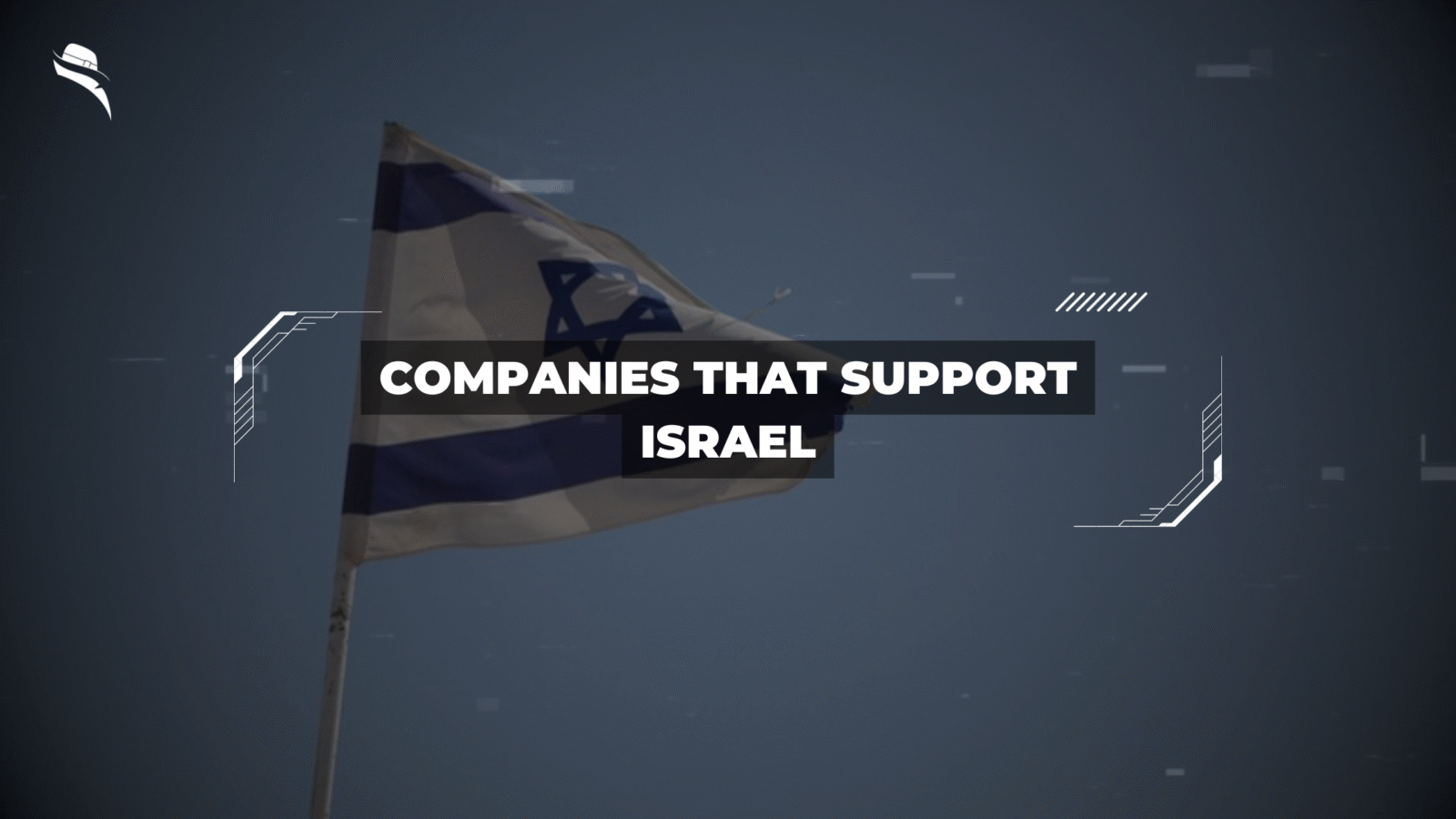
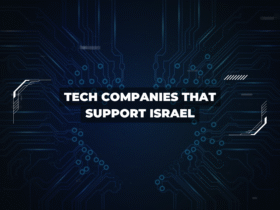
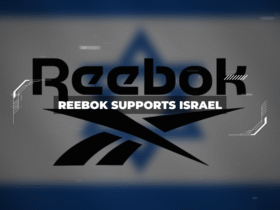
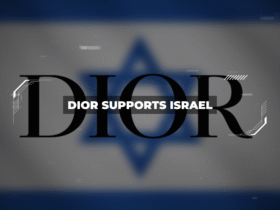
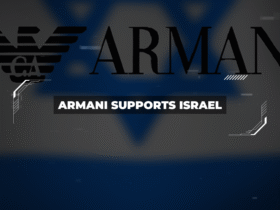
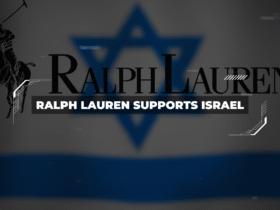
9 Comments